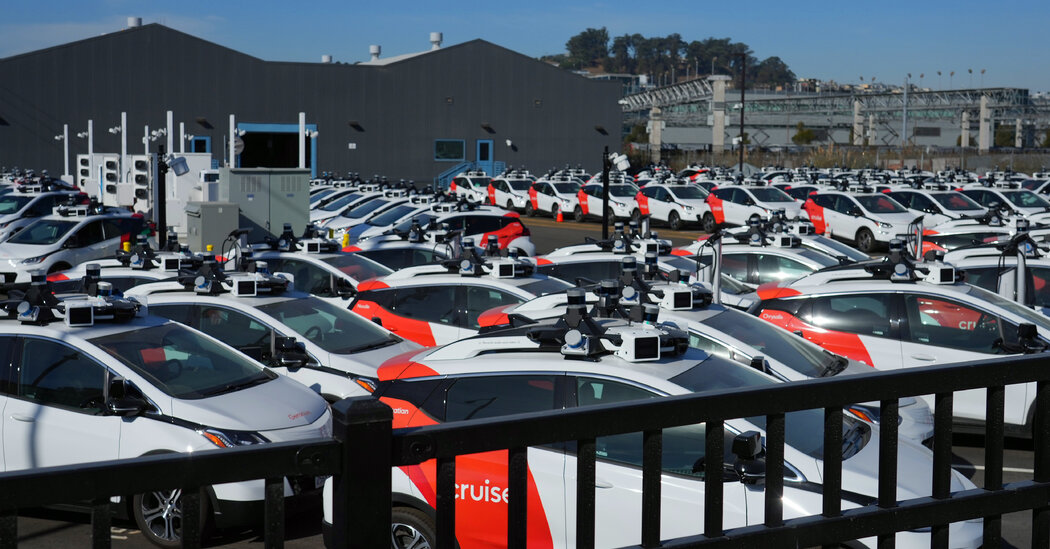General Motors said the self-driving division’s cars will operate in Dallas, Houston and Phoenix after an accident last year. Human drivers will supervise the cars.
General Motors said on Tuesday that its Cruise driverless-taxi division has restarted test operations in three Sun Belt cities, using self-driving cars with human safety drivers who will monitor the vehicles and intervene if needed.
G.M. had suspended most of Cruise’s operations after one of its vehicles hit and dragged a pedestrian last year in San Francisco, where the unit is based and had been operating an extensive fleet of taxis that people could hail through a mobile app.
The incident prompted California to revoke Cruise’s license to operate driverless vehicles in the state. G.M. laid off about a quarter of Cruise’s employees and brought in new executives to run the division.
G.M.’s chief financial officer, Paul Jacobson, said Cruise is now providing autonomous ride services in Dallas, Houston and Phoenix. He also said Cruise was using self-driving versions of the Chevrolet Bolt electric car and that production of a dedicated driverless cab called the Cruise Origin had been suspended indefinitely. G.M. developed the Origin — a rectangular, van-like vehicle with no steering wheel or pedals — specifically for Cruise.
“We think from a regulatory perspective, and also from a cost perspective, at this point in time, we think the Bolt is a better solution,” Mr. Jacobson said in a conference call with reporters.
Eventually, Cruise will switch to a modified version of a redesigned Bolt that is expected to go into production next year. Mr. Jacobson said the new Bolt will be less expensive than the Origin.
